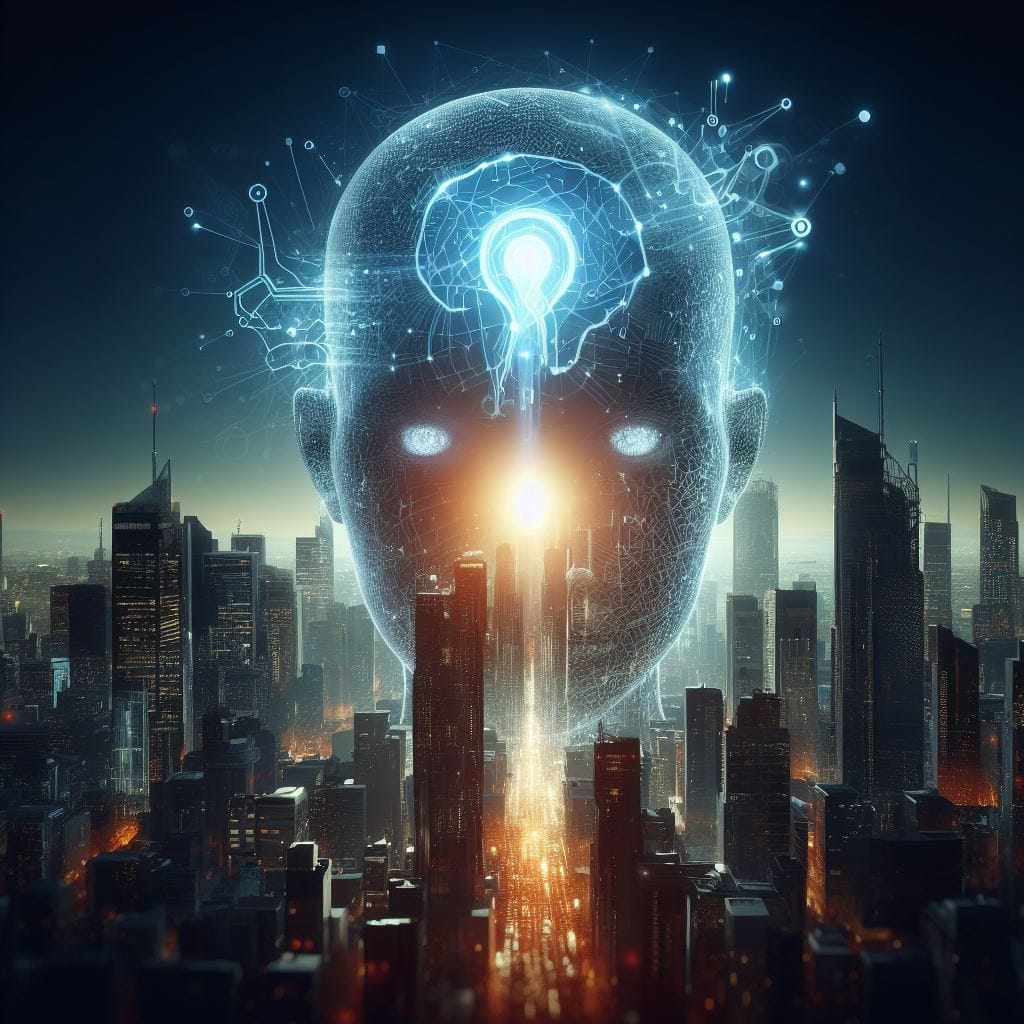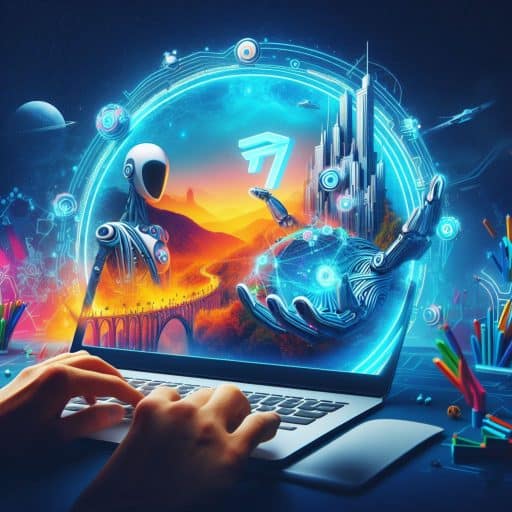In the rich tapestry of human technological achievement, no thread is as vibrant and as potentially transformative as the rise of Artificial Intelligence (AI). This journey through the digital age is witnessing the metamorphosis of AI from a nascent technology into a global force that remakes industries, redefines human interaction, and reshapes societal norms. The rise of artificial intelligence is not a mere technological trend; it’s an evolutionary leap, propelling us into an era where silicon and software can replicate — and surpass — the cognitive functions of the human brain.
The Genesis of the Artificial Intelligence Revolution: A Historical Perspective
From antiquity’s automata to modern-day machine learning algorithms, the concept of artificial intelligence has evolved from the mythic to the mundanely practical. We’ve progressed from wishful thinking of metal men to an ambitious scholarly initiative that began in the mid-20th century. Today, our exploratory vision of yesteryears is the living reality, as AI weaves its way into the fabric of everyday life. But to fully appreciate today’s AI ascendancy, one must first understand its origins and the pivotal developments that have shaped its trajectory.
AI’s Quantum Leap — From Logic Machines to Learned Algorithms
The journey of AI has been marked by enormous leaps, each pushing the boundaries of what machines are capable of achieving. The early incarnations of Artificial Intelligence, which relied upon explicit programming and rule-based systems, were groundbreaking for their time but limited in functionality. Machine learning, however, revolutionized AI by giving systems the ability to learn and adapt without being explicitly programmed. The transformative power of machine learning, and particularly its sub-discipline deep learning, has produced AI that can perform highly complex tasks — from interpreting natural language to recognizing facial nuances — with astonishing acuity.
Current Trends and Breakthroughs Paving the AI Landscape
The advancements made in Artificial Intelligence are prolific and continually breaking new ground. Natural language processing has humanized AI, enabling machines to interact through spoken word and written text, catalyzing developments such as AI-powered chatbots and virtual assistants. The growth of autonomous systems, particularly visible in the aspirational technology of self-driving vehicles, heralds a future of reduced human intervention. In the realm of healthcare, AI is poised to become an invaluable ally — enhancing diagnostic accuracy, personalizing treatment plans, and predicting patient outcomes with greater precision than ever before.

The Ripple Effects of AI’s Swift Current
The transformative effects of AI are pervasive and far-reaching. They reverberate through every stratum of society, rendering obsolete time-honored practices and birthing entirely new paradigms. This seismic shift bespeaks of an intelligent future that challenges the status quo, demands new ethical frameworks, and reimagines the human journey.
The Revolution in Industry and Economic Structures
AI’s reshaping of industrial and economic landscapes is profound and irreversible. In manufacturing, the integration of AI heralds an age of intelligent automation, spawning smart factories where machine precision and cognitive algorithms drastically increase efficiency and reduce human error. In the realm of finance, AI systems dissect vast tracts of data to forecast market trends with uncanny precision, steering investment strategies and financial decision-making.
The labor landscape too is experiencing a shift; as automation and AI-driven tools make certain job roles redundant, they simultaneously create new opportunities for employment in burgeoning tech domains. This shift brings with it the urgent necessity for societies to re-think education, training, and the social safety net to ensure equitable outcomes in the wake of AI’s rise.
Ethical Dilemmas and the Social Reconfiguration
AI’s rapid advancement isn’t without challenges; it compels us to confront a suite of profound ethical dilemmas. The omnipresence of AI in personal and professional domains raises pressing concerns about data privacy and the potential for surveillance. There’s also the paramount question of accountability in an automated world — when an AI makes a consequential decision, who is responsible?
The societal implications of AI are likewise profound. We are observing a significant recalibration in the way humans interact with technology and with each other, as the Introduction of AI-powered devices into the home alters household dynamics and social relationships. As these intelligent systems become more integrated into daily life, there must be a concurrent rise in understanding and critical engagement with this technology.
Redefining Global Power: The AI Arms Race
The strategic importance of Artificial Intelligence is not lost on the world’s powers. Countries are investing heavily in AI research and development, recognizing that leadership in this domain equates to economic and military advantage. An international AI arms race is taking shape, as nations vie to establish supremacy or, at the very least, prevent strategic disadvantages. This new facet of geopolitical competition also opens avenues for international collaboration, as nations acknowledge the universal challenges and potential benefits of AI, seeking to harness its power for global good.
Preparing for an Artificial Intelligence-Driven World
As the proverbial AI wave rises, the need for strategic vision and preparation is paramount. The future beckons, and with it, the necessity to align the educational sphere, foster human-machine cooperation, and define the regulatory landscapes that will ensure AI’s ethical integration into society.
Education Revolution: Cultivating AI-Ready Minds
The educational system stands on the cusp of a revolution, necessitated by the influx of Artificial Intelligence technologies. The workforce of tomorrow needs not only to understand AI but to be proficient in leveraging its capabilities. This requires a restructuring of educational paradigms to prioritize AI literacy from early education through to higher learning. Moreover, as AI continues to evolve, so too must our commitment to lifelong learning, ensuring that our workforce remains agile and adaptive to the shifting technological landscape.
The Symbiosis of Human Creativity and Machine Precision
Human creativity and machine efficiency are often seen in opposition, but in an AI-augmented world, they can be symbiotic. The blend of human intuition and emotional intelligence with AI’s data-crunching capabilities and faultless recall can lead to unprecedented innovation and problem-solving. This partnership promises to amplify human potential, unlocking new vistas of creativity and ingenuity.
Policy Frameworks: Steering AI for Public Good
As with any far-reaching innovation, AI requires governance that addresses not only its technical dimensions but also its societal impact. Policymakers are tasked with the arduous duty of crafting regulations that safeguard privacy, foster innovation, and ensure AI’s applications align with the public interest. These frameworks will not only shape AI’s growth path but ensure its development is inclusive and aligned with universal humanistic values.
The Vanguard of AI: Research, Ethical Development, and Innovation
Central to the unfolding AI narrative are the researchers and developers who are at the frontier of this technology. Their dedication to exploring AI’s capabilities and their commitment to embedding ethical principles into AI’s foundational architecture are key to realising AI’s full potential. Their work is shaping a future where AI is not a threat but an enabler of human progress.
Engaging Society: Building Trust in AI Systems
The path to widespread acceptance of Artificial Intelligence hinges on public perception. Ensuring that society at large understands the benefits, and limitations, of artificial intelligence is critical to building trust and support for these systems. Initiatives for public engagement, transparency, and education around AI are paramount for dispelling fears, debunking myths, and demonstrating AI’s capacity for good.

Conclusion: Embracing the Artificial Intelligence Renaissance
The narrative of the rise of artificial intelligence is as much about human adaptability as it is about technological advancement. As we stand on the cusp of this AI-induced renaissance, it is our collective responsibility and opportunity to harness the power of intelligent systems and guide their growth for the greater good. The future we envision today, rich with possibilities, innovation, and advancement, is ours to shape. Let’s embrace the brilliance of the AI dawn, and create a future that remembers this moment for the titanic leap of progress it promises to be.


Recent Comments